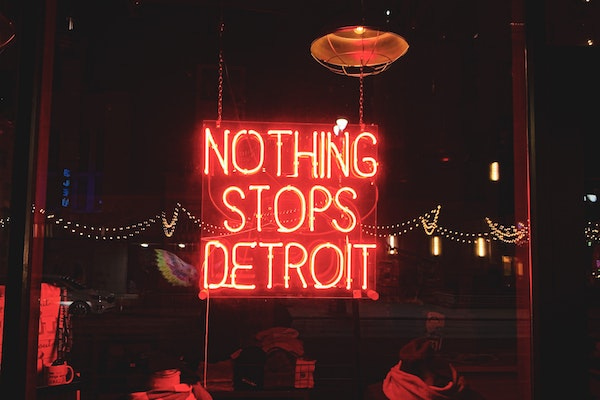Curbside pickups, adult-use restrictions, employee badge issues, 8X sales increases and other coronavirus-infused cannabis stories
Here’s how coronavirus is impacting Illinois cannabis companies

Even before coronavirus infected public markets, the first iteration of the cannabis industry was facing an existential crisis. Might an uptick in demand serve as its lifeline?
In the months leading up to coronavirus, Illinois-based cannabis companies navigated through supply chain disruptions, product sales restrictions and nose-dive valuations. Yet consumers couldn’t get enough of what they were selling.
Now what?
“Everyone is losing money,” explains Kris Inton, an equity analyst who covers the cannabis sector for Chicago-based Morningstar. “The question is who survives long enough to be part of that market as it continues to grow tremendously.”
Green Thumb Industries (GTI), based in Chicago, is among the few publicly traded companies with enough cash on hand to ride things out for a while. This, says Inton, is the result of a more “deliberate” expansion strategy where the company purchased product wholesale rather than entering a “competitive” cultivation market where costs run high.
As of March 19th, all of GTIs 41 nationwide locations (including seven in Illinois) remain open. While many independent dispensaries are limiting sales to medical consumers exclusively, GTI along with Cresco Labs’ Sunnyside dispensaries and other vertically-integrated multi-state operators are continuing to serve adult-use consumers at some capacity.
“Many of our customers and patients rely on us for life-changing medicine and their daily well-being,” said Linda Marsicano, GTI’s VP of corporate communications. “So we are doing everything possible to serve them while implementing safety precautions and following CDC guidelines and state regulations.”
Chicago-based PharmaCann, which operates in seven states and has four dispensaries in Illinois, continues to build out cultivation facilities (including one in downstate Dwight) that once complete will bring more robust inventory to local retailers. In the meantime, says the company’s director of regulatory and public affairs, Jeremy Unruh, PharmaCann is doing what it can to share precious flower inventory in local retailers in need.
“We are taking steps to carve out significant amounts of inventory that is being used by independent stores,” he said.
Not enough badged budtenders
Fewer dispensary employees are choosing to show up for work right now. Staffing was already an issue earlier in the year, when adult-use sales first became available. Back then there were not enough state certified and badged employees to handle the increased demand.
“We are hopeful that states will move faster on new employee approvals,” said Mark de Souza, CEO of Revolution Global.
Illinois typically requires a biometric fingerprint in order to obtain a badge to work in many cannabis-related jobs that touch or are near the plant. Sources indicate that the state is loosening restrictions to allow individuals who have not obtained a formal badge – but have completed all certification requirements – to show up for work with a print out or digital record of completion.
Curbside sales a work in progress
Industry owners and executives are generally applauding efforts by the state of Illinois to reduce road blocks to a heavily regulated – but steadily normalizing – industry.
Case in point, this week the Illinois Department of Financial and Professional Regulation made it possible for medical patients to pick up online orders via curbside delivery. While this helps stores maintain social distancing directives, employee shortage and implementation challenges are slowing down the sales process. Many dispensaries are not yet serving customers via curbside.
Applications for craft grow, infusion and transport licenses extended - recreational expansion on pause
The second phase of adult-use commercial cannabis licenses in Illinois was pushed back two weeks to March 30. These coveted and competitively obtained assets, which on average are estimated to be worth close to $2 million in intrinsic value by industry practitioners, include 40 licenses to craft grow, 40 licenses to infuse and an unlimited number of licenses to transport cannabis in Illinois.
Meanwhile, cannabis companies with recreational licenses looking to cut through municipal zoning issues to open up shop in Chicago is on hold. These processes typically require community meetings, which won’t resume for the foreseeable future.
Whenever we hit the flip side of all this, Naperville will probably be open for recreational business as voters decided on 3/17 in a non-binding referendum that the pros outweigh the cons. The mayor’s onboard as well, and expect other municipalities still on the fence to officially follow-suit, perhaps via community Zoom calls.
Here’s how coronavirus impacts cannabis industries across North America

Michigan governor Gretchen Whitmer’s instant embrace of home delivery is “a shock to the system” says Andy Seeger of Chicago-based Brightfield Group.
Desperate times are calling for measures that only a few weeks ago would have seemed unheard of in the cannabis industry.
Michigan, which began its relative slow roll to adult-use legalization in December and now has 15 recreational dispensaries alongside 66 medical locations, this week began encouraging medical patients to order supplies online for home delivery.
“It’s a shock to the system to see Michigan add delivery,” said Andy Seeger, manager of cannabis research at the Chicago-based Brightfield Group.
Michigan’s Marijuana Regulatory Agency, based on guidance from Governor Gretchen Whitmer, this week said it will process delivery license applications within a period of two days. Further, customers can order medical weed to locations and not be required to present identification with corresponding addresses.
If it can make it there…
Jarrett Annenberg, director of acquisitions for Chicago-based NewLake Capital - a cannabis real estate investment trust funded in part by GTI co-founder Pete Kadens - said his firm is monitoring local and national compliance changes as a result of coronavirus.
New York, which this week pondered shelter in place restrictions for residents, is making exceptions for medical patients, which include cannabis customers.
“New York has stated that cannabis dispensaries will remain open in the event of a "non-essential retail closure" as it is akin to a pharmacy,” Annenberg said.
Minnesota considers medical card reciprocity
While it is extremely unlikely for the federal government to ease restrictions on the interstate transport of commercial cannabis anytime soon, industry practitioners are encouraging states to work together, particularly as it relates to the welfare and rights of medical customers.
“This is a time for liberalization,” says Seeger of the Brightfield Group, citing that Minnesota does not allow customers with medical cards from other states to purchase cannabis in its dispensaries. “This would be a good time for cannabis boards to say we will protect each other and encode patient rights across states.”
Blow Canada
Adult-use cannabis sales and consumption is federally legal in Canada. Accordingly, customer analytics nationwide – not to mention inventory – is more accessible.
Let’s just say the product is in high demand.
Especially since, says Seeger, online sales in Ontario are up approximately 80 percent in recent days. Some dispensaries individually are increasing sales by 800 percent!
Bottom of the Newsletter

We have no choice but to roll with things for the foreseeable future, and find comfort and solace from within. See you Monday…



